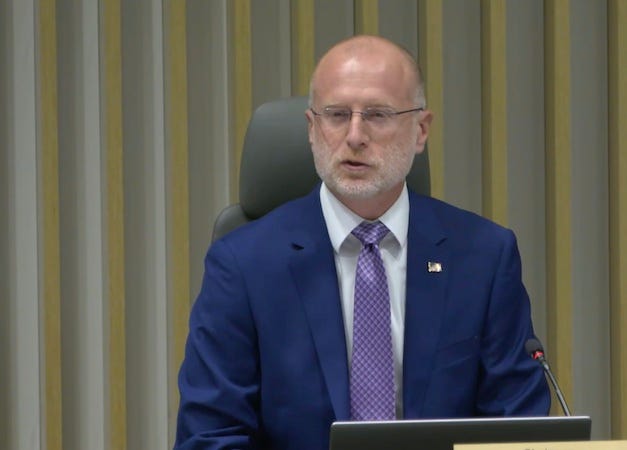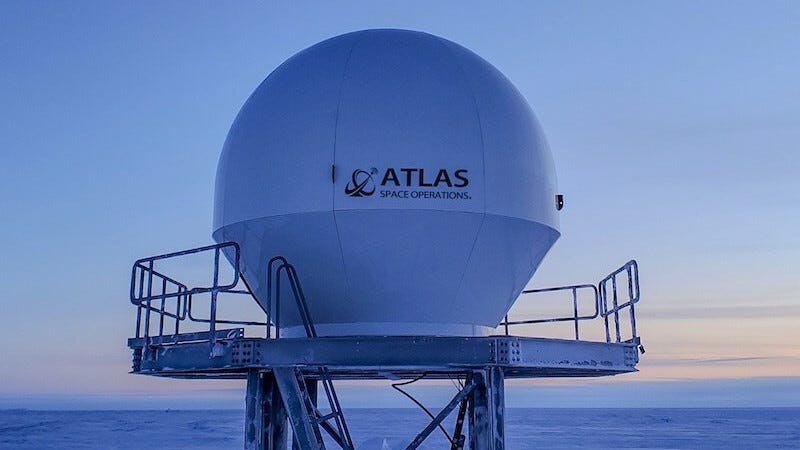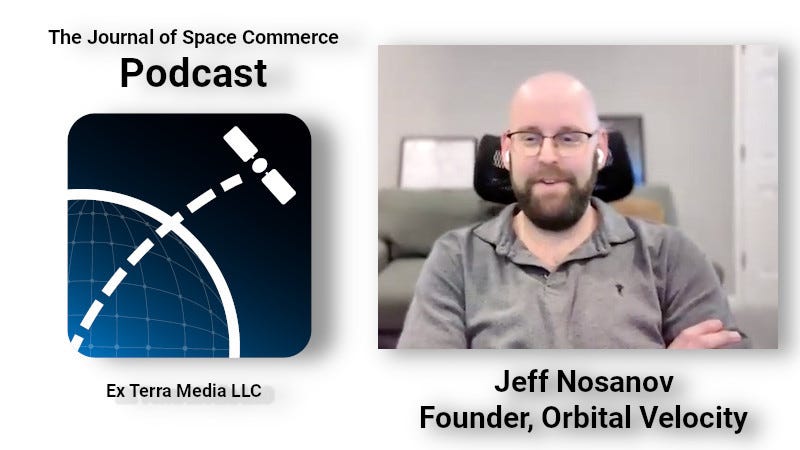As human access to space continues to surge, a new bipartisan Congressional Caucus dedicated to U.S. leadership in space exploration has officially been established. The Advancing Humanity in Space Congressional Caucus (AHSCC) was formed through the leadership and vision of its four bipartisan co-chairs: Republicans Don Bacon of Nebraska and Gabe Evans of Colorado, along with Democrats Glenn Ivey of Maryland and George Whitesides from California.
With support from Space for Humanity, the new caucus "is dedicated to improving U.S. leadership in space exploration while ensuring that policies align with national priorities, technological innovation, economic growth, and global collaboration," according to its charter.
The AHSCC will serve as a bipartisan forum, demonstrating how space can unite people across ideological divides around a shared vision for the future. This is the first time a Congressional Caucus has been chartered exclusively dedicated solely to advancing humanity's exploration of space.
-0-
Staying on Capitol Hill for just a moment, a bipartisan bill that was recently introduced in the U.S. Senate would promote aeronautical and space research, educate a 21st century space workforce, and enhance U.S. commercial competitiveness in the space and aerospace industries.
The Space Exploration Research Act authorizes the NASA administrator to lease and lease-back certain property to alleviate roadblocks for the development and use of property adjacent to NASA facilities. The bill also helps Johnson Space Center (JSC) remain as a lead center for training and exploration activities, which will make Texas a hub for job growth in the space and aerospace industry.
The legislation aims to benefit a multitude of educational institutions, commercial space, and surrounding employers. It also enables access to cutting-edge facilities, provides students with hands-on opportunities to solve real-world space problems, and builds up a workforce for the rapidly growing space economy.
-0-
Elsewhere in Washington, the FCC will vote on reforms to accelerate innovation and growth in America’s space economy, especially for startups and new businesses, at its meeting on August 7th. If adopted, the new reforms would eliminate needless paperwork and clear regulatory barriers to Ground-Station-as-a-Service (GSaaS), a business model where a single facility on Earth connects to multiple satellite systems in space.
GSaaS gives satellite operators, especially startups and emerging growth companies, the ability to send and receive signals without having to build their own infrastructure. The FCC’s reforms will give this exciting business model a solid regulatory footing it previously lacked.
The order to be voted on August 7th would:
Streamline and expedite processes for space stations and earth stations, including removing many requirements to file license modification applications;
Allow the nascent GSaaS industry to invest and grow with newfound regulatory clarity—without unnecessary or burdensome regulation; and
Establish a new process for ground station operators to receive a baseline license without first identifying a specific satellite point of communication
For each new point of communication, only a simple FCC notification will be needed. This one change would eliminate approximately 49% of earth station modification applications, the commission says.
And, the proposed reforms would expand the list of license modifications that do not require prior authorization, adopt a 30-day shot clock for earth station renewal applications, and eliminate repetitive requests for special temporary authority for geostationary orbit satellites.
-0-
Why not take a minute to become a paid subscriber to The Journal of Space Commerce. Whether you’re a space professional, investor or an enthusiast, paid subscribers have first access to premium articles and podcasts focused on the new space economy. Just visit www.exterrajsc.com on Substack, and help keep The Journal of Space Commerce independent as we chronicle, cajole and, when necessary, critique the commercial space industry.
-0-
Orbit Fab unveiled their next steps to refuel satellites at the recent UK Space Conference in Manchester. The UK Minister responsible for space, Chris Bryant, announced that the company has been selected for about $876,300 of funding from the UK Space Agency. The funding will be delivered through the European Space Agency’s (ESA) ARTES program to work with commercial satellite operators and extend the life of communication satellites.
Named project “RADICAL”, short for “Refueling Architecture Development for In-Orbit Communications and Logistics”, the project will develop comprehensive refueling services for spacecraft, initially targeting the satellite communications (satcom) market. The project will enable telecom satellites in Geostationary orbit to be refueled, extending their life and delivering far greater efficiency, revenue, and reliability of satellite missions.
Orbit Fab will work with a major prime and satellite operator to adapt their mission operations and platform to enable refueling. The project directly supports ESA’s commitment to space sustainability and responsible operations, consistent with Orbit Fab’s signature of the ESA Zero Debris Charter in 2024.
-0-
The parent company of York Space Systems (York) has agreed to acquire Atlas Space Operations (Atlas), a pioneer in Ground Software as a Service (GSaaS) for satellite communications. The move brings York a powerful, software-led ground architecture that simplifies operations, removes integration barriers, and enhances space-to-ground resilience—accelerating York's ability to deliver secure, mission-ready space systems at unmatched speed and value.
Atlas will play a key role in York's Golden Dome architecture, a next-generation defense solution that unifies spacecraft, software, and ground operations to deliver full-spectrum capabilities across contested environments. Atlas will continue to operate independently under its existing brand, serving its diverse portfolio of customers across the space industry.
This acquisition will strengthen York's ability to deliver integrated, mission-ready systems by pairing its high-performance spacecraft and software-defined operations with Atlas's proven ground communications platform, thereby enhancing end-to-end mission delivery and accelerating deployment timelines, improving data flow from space to ground, and enabling more resilient, autonomous operations across both commercial and national security missions.
-0-
There is a lot of work that goes into getting an idea off the drawing board and into space, and often, that process begins with a pitch to potential investors or government granting institutions. Orbital Velocity has won over $2 billion for previous clients, customers, and employers to bring their ideas to fruition.
On this edition of The Journal of Space Commerce podcast, I talked with Jeff Nosanov, the founder and CEO of Orbital Velocity and host of The Space Madness podcast.
Nosanov said that the secret for a space proposal is to know what they want before they do.
"And ideally influence what they want before they do. We call that shaping the opportunity in the space business. And that can be everything from extensive networking well in advance of when you expect an opportunity to be published, to, on the scientific side, effective advocacy of your technology or instrumentation or even your scientific goals are all completed and mutually exclusive in some cases," Nosanov told Ex Terra Media. "So that by the time the contracts people at agencies like NASA and DoD ... are writing something it’s basically for what you want to sell them, or what you've already been working on."
Jeff Nosanov is the founder and CEO of Orbital Velocity.
-0-
And those are some of the top stories we covered for you on The Journal of Space Commerce this week. Space Commerce Week is a production of Ex Terra Media. You can get daily updates on space commerce by subscribing to The Journal of Space Commerce on Substack at www.exterrajsc.com. And please consider becoming a paid subscriber. Whether you’re a space professional, investor or an enthusiast, paid subscribers have first access to premium articles and podcasts focused on the new space economy. Just visit www.exterrajsc.com and help keep The Journal of Space Commerce independent as we chronicle, cajole and, when necessary, critique the commercial space industry.
-0-
You Might have Missed:


















